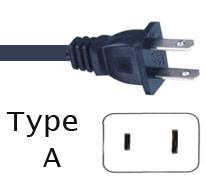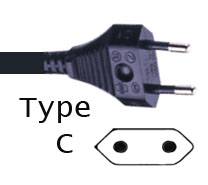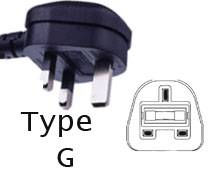Ultimate Bangladesh Travel Guide
Destinations
Best time to go
The best time to visit Bangladesh is during the winter months, from November to February, when the weather is cool and dry, making it ideal for exploring the country’s attractions. Monsoon season, from June to October, brings heavy rains and humidity, while the summer months, from March to May, can be hot and humid.
Average Temperature By Month
January: 20°C (68°F)
February: 23°C (73°F)
March: 28°C (82°F)
April: 31°C (88°F)
May: 32°C (90°F)
June: 32°C (90°F)
July: 31°C (88°F)
August: 31°C (88°F)
September: 31°C (88°F)
October: 29°C (84°F)
November: 26°C (79°F)
December: 22°C (72°F)
What To Expect
Time Zone:
Bangladesh Standard Time (BST), UTC+6.
Currency:
The official currency of Bangladesh is the Bangladeshi Taka (BDT). While credit cards are accepted in major cities and tourist areas, it's advisable to carry cash for smaller establishments and rural areas.
Language:
Bengali (Bangla) is the official language of Bangladesh. English is also widely spoken, especially in urban areas and tourist destinations.
Airport:
Hazrat Shahjalal International Airport (DAC) in Dhaka is the main international airport in Bangladesh, serving as the primary gateway for international travelers.
How To Get Around
Public Transport: Bangladesh has an extensive network of buses, trains, and ferries, connecting major cities and towns. Rickshaws and CNG (Compressed Natural Gas) auto-rickshaws are popular modes of transport for short distances within cities.
Domestic Flights: Domestic flights are available for traveling between major cities and regions, offering a convenient option for long-distance travel.
River Transport: Bangladesh is crisscrossed by numerous rivers, and river transport, including ferries and boats, is commonly used for traveling between towns and exploring riverine landscapes.
Average Temperature By Month:
January: 20°C (68°F)
February: 23°C (73°F)
March: 28°C (82°F)
April: 31°C (88°F)
May: 32°C (90°F)
June: 32°C (90°F)
July: 31°C (88°F)
August: 31°C (88°F)
September: 31°C (88°F)
October: 29°C (84°F)
November: 26°C (79°F)
December: 22°C (72°F)
Plugs:
Bangladesh typically uses Type C, D, and G electrical plugs, with a standard voltage of 220V and a frequency of 50Hz.
VPN:
Using a VPN is advisable for secure internet browsing, especially when accessing public Wi-Fi networks.
Safety:
Bangladesh is generally safe for travelers, but it's essential to exercise standard precautions, such as safeguarding belongings and staying informed about local conditions. Additionally, be respectful of cultural customs and traditions during your visit.
Credit Cards and Banks
Credit Cards:
Credit card acceptance in Bangladesh is growing, especially in major cities, hotels, restaurants, and larger shops. Visa and MasterCard are the most commonly accepted cards, although American Express and some local cards are also used. However, credit card usage may be less common in smaller towns and rural areas.
ATMs:
ATMs are available in major cities and tourist areas throughout Bangladesh, allowing you to withdraw Bangladeshi Taka (BDT). Dhaka, the capital city, and popular tourist spots like Cox’s Bazar and Sylhet have a good number of ATMs. However, it’s advisable to carry enough cash when traveling to more remote areas, as ATM availability may be limited.
Currency Exchange:
The official currency of Bangladesh is the Bangladeshi Taka (BDT). It’s recommended to exchange your currency to Bangladeshi Taka upon arrival in Bangladesh. You can exchange major foreign currencies at banks, currency exchange bureaus, and authorized money changers. US dollars and euros are widely accepted for exchange.
Banks:
Major banks in Bangladesh include:
- Sonali Bank: One of the largest banks in Bangladesh, Sonali Bank offers a wide range of banking services including savings accounts, loans, and foreign exchange.
- Dutch-Bangla Bank: Another prominent bank in Bangladesh, Dutch-Bangla Bank provides various banking products and services for individuals and businesses.
Traveler’s Checks:
Traveler’s checks are not widely accepted in Bangladesh, and their usage is limited. It’s recommended to carry cash or use credit/debit cards for transactions. However, some banks may still offer services for cashing traveler’s checks, albeit with a fee.
Tips for Banking in Bangladesh:
- Notify your bank before traveling to Bangladesh to inform them of your travel plans and avoid any issues with card usage abroad.
- Keep your PIN and card information secure, and be cautious when using ATMs, especially in secluded areas or at night.
- Carry small denominations of Bangladeshi Taka for smaller purchases, as change may be limited.
- Familiarize yourself with the current exchange rate to ensure fair transactions when exchanging currency.
By understanding the banking system in Bangladesh, you can ensure a smooth and hassle-free financial experience during your travels in the country.
Locations
TRAVEL FACTS
US State Dept Travel Advisory
The US Department of State currently recommends US citizens exercise increased caution due to crime, terrorism, and the upcoming general election.
https://travel.state.gov/content/travel/en/traveladvisories/traveladvisories.html
Passport/Visa Requirements
For the latest passport and visa requirements for this country, please consult the U.S. State Department’s “Learn About Your Destination” search tool, available through the link below.
US Embassy/Consulate
[880] (2) 5566-2000; US Embassy in Dhaka, Madani Avenue, Baridhara, Dhaka -1212, Bangladesh; https://bd.usembassy.gov/; DhakaACS@state.gov
LGBTQIA+ Travelers
Telephone Code
880
Local Emergency Phone
Police, Fire and Ambulance: 999; various government services: 333
Vaccinations
The CDC and WHO recommend the following vaccinations for Bangladesh: hepatitis A, hepatitis B, typhoid, cholera, yellow fever, Japanese encephalitis, rabies, meningitis, polio, measles, mumps and rubella (MMR), Tdap (tetanus, diphtheria and pertussis), chickenpox, shingles, pneumonia, influenza, and COVID-19.
Climate
Tropical; mild winter (October to March); hot, humid summer (March to June); humid, warm rainy monsoon (June to October)
Currency (Code)
Takas (BDT)
Electricity/Voltage/Plug Type(s)
220 V / 50 Hz / plug types(s): A, C, D, G




Major Languages
Bengali
Major Religions
Muslim, Hindu
Time Difference
UTC+6 (11 hours ahead of Washington, DC, during Standard Time)
Potable Water
Opt for bottled water
International Driving Permit
Suggested
Road Driving Side
Left
Tourist Destinations
Cox’s bazaar; Saint Martin’ Island; Teknaf Sea Beach; Nilachal Bandarban; Sundarbans; Somapura Mahavihara (ruins of the Buddhist Vihara at Paharpur)
Major Sports
Kabaddi (contact team sport played between two teams of seven players each), cricket
Cultural Practices
It is considered impolite to cross one’s legs or to smoke in the presence of elders. Young people may show respect to older people by touching their feet. Bangladeshis do not commonly queue in crowded public places, such as train stations or shopping centers.
Tipping Guidelines
Tipping is very uncommon and may be seen as ostentatious. Taxi fares may be rounded up and left with the driver as a tip, and 20-30 takas a day is common for hotel staff.
Souvenirs
Pink pearls, mother-of-pearl jewelry, hand-loomed fabrics, silk, carved masks, leather goods, folk dolls
Traditional Cuisine
Ilish macher paturi — rice and Ilish fish marinated with ground spices and wrapped in banana leaves and steamed or roasted
Please visit the following links to find further information about your desired destination.
World Health Organization (WHO) – To learn what vaccines and health precautions to take while visiting your destination.
US State Dept Travel Information – Overall information about foreign travel for US citizens.
To obtain an international driving permit (IDP). Only two organizations in the US issue IDPs:
American Automobile Association (AAA) and American Automobile Touring Alliance (AATA)
How to get help in an emergency?
Contact the nearest US embassy or consulate, or call one of these numbers:
from the US or Canada – 1-888-407-4747 or from Overseas – +1 202-501-4444
Central Intelligence Agency.
The World Factbook.
/the-world-factbook
(May 8, 2024)



